There is French dirt from the Calais camps coating my clothes. Dust from the warehouse blurring the lenses of my glasses. The cracks in my hands are sore and dried out, and each finger has too many smudges of permanent marker to count.
In seven days, I’ve become obsessed with packing cardboard boxes full of donated clothes and storing them on the warehouse shelves; I wear rolls of parcel tape like bracelets, and my orange hi vis vest is like a second skin.
Life moves quickly in the storage warehouse which various grassroots organisations like Help Refugees and Auberge de Migrantes call home – and so does the education of the volunteers who work there. It took me just twenty four hours to transition from a confused and nervous new arrival, unsure of what to do and who to ask for advice, to a self-assured worker in an environment I never imagined would feel so suddenly familiar.
But it might be useful to first explain exactly what I was doing in Calais at the start of 2016.
Arriving in Calais to volunteer
Ever since the tiny body of three year old Aylan Kurdi washed up on a Turkish beach, I’ve been planning to volunteer my time and energy within the chaos that is the refugee crisis. In late December a university friend posted on Facebook, asking for companions on a trip to volunteer at the refugee camps in Calais, and a week later we set off to catch the Eurotunnel train, early on the second day of the new year.
The plan was simple enough: to turn up at the warehouse and offer to help in any way necessary. Before leaving for France we’d booked accommodation at a local hostel and registered the time and date of our arrival (by emailing calaisaid@gmail.com) which put us through to the volunteer coordinator for L’Auberge & Help Refugees – a coalition of volunteer groups based in Calais who collect, sort, and distribute donations to refugees.
Apart from that, we had no real idea what the week would entail.
“How long are you guys here for?”
A cheerful woman in an orange hi-vis jacket called out to us as we walked inside the warehouse entrance. Within no time we’d been commandeered by Becky, a self-proclaimed ‘Dragon at the Gate’ who was responsible for overseeing whatever came in and went out of the warehouse. She was leaving Calais the next day and quickly decided that Beth and I would be her new replacements.
At that point, we still knew nothing about the warehouse we’d just stepped into – but we were about to receive a lesson in quick-fire learning.
Dealing with donations in Calais
Each day, cars and vans arrive at the warehouse entrance, eager to unload the hauls they’ve driven from the UK, France, Belgium or further afield. There are tents and sleeping bags, tinned food and children’s shoes, piles of shirts and waterproof jackets, all collected from the backs of wardrobes or the homes of their neighbours or from shout-outs on social media.
The best carloads are those which have already been organised into labelled bags: it makes life a lot easier for the volunteers who take the donations through the warehouse and into the Main Sort, a spread of tables surrounded by scurrying volunteers in yellow hi-vis vests and flanked by boxes.
This central area of activity in the warehouse was soon to become my life.
Stage 1: the Main Sort
The Main Sort is where a donated bag of clothes is turned out onto a table, sorted into gender, type, and size, thoroughly investigated for dirt, rips, and quality, before finally being placed into the appropriate ‘sorting’ boxes – placed on three levels for large, medium and small items.
Stage 2: boxing
When these holding boxes are getting full, volunteers from the boxing team pack the contents carefully into boxes, seal with parcel tape and stick an orange label on the outside explaining the contents with their gender, size, description, amount and the date they were packed. A standard label reads something like this:
MALE LARGE non-waterproof jackets (thick)
x 10
(7/1/2016)
Although I’ve never felt I have an obsessive personality, something about the boxing process just clicked with my organisational tendencies. Orange tape and permanent markers were always near to my scrabbling hands, and I grew obsessed with the seemingly-elusive search for just the right size of cardboard box.
I felt a bit like a warehouse-dwelling Goldilocks.
Stage 3: racking
After donations are boxed up and labelled they go onto the warehouse shelves via the racking system. This takes up the majority of space in the warehouse, and is impeccably organised by racking volunteers who can re-find a box of women’s medium fleeces or men’s large chunky jumpers at a moment’s notice.
The racks are where all the donations usually end up, but they’re not there for long. The warehouse is intended to be purely for organisation: the constant aim is to get donations out to the refugees who need them as quickly as possible.
Outside of the main sort, other areas of industry are scattered around the warehouse: organising and boxing up shoes and children’s clothes, hygiene equipment and medical gear, and creating welcome packs for newly arriving refugees.
Settling into the warehouse mentality
As volunteers, we quickly grew used to the pattern of activity.
We woke at 7am each morning to alarms ringing in the pitch black; downed a hostel breakfast of baguette and black coffee; decided which volunteers needed a lift to the warehouse; listened to an inspiring briefing from one of the long term volunteers (clad in orange hi vis instead of yellow to differentiate who best knew the system) before cracking on with work for the day.
It’s hard to explain the effect this chilly building had over me. Each morning, I walked in with my blood beginning to race; hand digging straight to the pile of hi vis vests as I strode with purpose to the boxing area, eager to pick up where I’d left off the day before. I barely looked up except for the various breaks throughout the day: a morning coffee break, a delicious vegetarian lunch cooked onsite with donated food, and a pause for tea in the afternoon.
By around 6.30pm each evening, we were packing up the warehouse and heading back to the hostel for a much-needed shower, a picnic dinner or a drink at the nearby pub, before passing out in bed by 11pm (and there’s no shame in admitting that I talked in my sleep about cardboard boxes on multiple occasions, either.)
Thinking outside the warehouse box
Once we understood the organisational system it was easy to get on with our jobs – but as the week went on, I began to realise how important it was to keep the bigger picture in mind. That all our action in the warehouse had an end goal, and it was directed straight towards the refugees.
For instance, I was boxing up clothes that would next be opened at a distribution point within the refugee camp, most likely when people had been queuing for over an hour to receive just one item each.
The idea that they might get the wrong thing – and have their hopes crushed as a result – was enough to not feel bad about repeatedly reminding the sorting volunteers around me that a sleeveless gilet doesn’t count as a jacket; that ‘waterproof’ absolutely has to be able to repel rain; that if we wouldn’t wear clothes with rips and holes, we have to respect that a refugee with their dignity still intact won’t necessarily want it either.
The beautiful thing, though, was having the luxury to make these kinds of decisions about inappropriate clothing: ‘The Mountain’ that takes up one corner of the warehouse is filled with bags and boxes of clothes which arrive on a regular basis.
And as we deliberated, that mountain of fresh donations grew ever bigger.
In the mild hysteria of counting clothes and packing boxes, it was also easy to forget how much generosity we were dealing with. But knowing that every single item in that warehouse was thanks to a kind, helpful, concerned person somewhere in the world was a seriously positive realisation.
The true value of the volunteers
Being in the warehouse drilled home to me just how many different groups are involved in a humanitarian crisis like this. On the physical level we need a place to work from; on a monetary level we need funds to buy supplies; and on a logistical level we need manpower to make everything actually happen.
The turnaround for volunteers was astoundingly quick. Each morning I met new, eager faces, and each night I said goodbye to people who had quickly become good friends.
Being thrown together in pursuit of a common good can do wonders for forming immediate relationships.
Ultimately though, I was inspired by seeing just how many people were ready and willing to sacrifice their time, money, and energy to help in any way they could.
There were students and carpenters, festival workers and businessmen, groups of church workers and political activists – some solely dropping off donations, others spending a few days to a few weeks in the warehouse, and a few fantastic people who’d realised their normal life was now on the back burner and had become long term volunteers.
The level of concern for each other was something special too: everyone pulling together to ensure we all dealt with this surreal and sad situation as best we could. A network grown from a simple desire to help.
The warehouse system works because of volunteers, pure and simple. The new ones learn from the old, quickly seeing how crucial it is to continue on doing the work that others have set up – and somehow, because it’s a voluntary endeavour, there’s a dedicated passion to the whole enterprise.
And it’s that passion which drives the entire operation: having someone who hears a volunteer (ahem, me) worrying that we’re going to run out of cardboard boxes, quickly makes a call to his family in England who transfer him some money, and appears a few hours later laden with flatpack boxes he’s driven off to buy.
Tom, if you’re reading this, I still can’t believe you did that.
So maybe I’m harping on too much about boxes, clothes, donations and volunteers. Frankly, I don’t care. It only took a week of being in that warehouse to realise that it’s changed me into someone who’ll happily risk being irritating if it gets the job done quicker and better.
Surprise, surprise: volunteering changes you
Telling my friends about Calais, I joke about becoming a cardboard box queen and refusing to leave the main sort area except when an orange hi-vis shouted, ‘Flora, lunch is mandatory!’ – but honestly? It was because I could actually see how my actions were helping, right there in front of me. I understood one tiny part of the system – knew how to do it quickly and efficiently – and that fired me up. Made me want to do a hell of a lot more.
So despite being home in London again right now, I know I’ll be back in that chilly French warehouse as soon as time permits – with more layers, hand sanitiser, lip balm and toilet roll for the Portaloos outside, and as many donations as I can carry.
Why? Because I’m human, and but for the luck of being born in Britain, I could be in exactly the same dire living situation as the refugees.
And I can’t not try and help.
Have you volunteered in Calais, or in any of the places responding to the refugee crisis? I’d love to hear your stories!
Resources
If you’re still getting to grips with the refugee crisis, have a look at some of these links:
News
Human Rights Watch talks about the migration crisis spreading through Europe
The BBC explains why more than a million people have crossed into Europe in 2015
The Independent provides historical and global context for the crisis
Calais People to People Solidarity is a Facebook group with regular updates about Calais and Dunkirk
Personal Experiences
The rapper and musician Dizraeli talks about his three days spent in the Calais camp
A woman encounters refugees in Turkey while on holiday
What Christmas is like for the refugees in Calais’s camps
Donations
The list of specific needs changes regularly, but we’re always looking for the following:
- Boots/trainers size 42 and 43 (not wellies)
- Thick blankets (not fleece)
- sleeping bags (3/4 season)
- duvets (used for roof insulation)
- torches (no candles as it’s a fire risk)
- binliners, cardboard boxes and parcel tape!
The outdoor store Leisure Fayre has also partnered with the relief effort: ordering goods like coats, boots, tents, sleeping bags and torches for refugees through their website provides you with a 20% discount and direct delivery to the Calais warehouse.
Volunteering
If you’re considering volunteering in Calais (or anywhere else related to the refugee crisis), you have my complete support! It’s really so easy to head to Calais if you’re based in the UK – simply decide what date you’ll arrive & let the guys at CalAidipedia know. As a grassroots charity with no funding, they can’t provide transport or accommodation but if you have a few days spare I guarantee you’ll meet some fantastic people & help to make a difference.

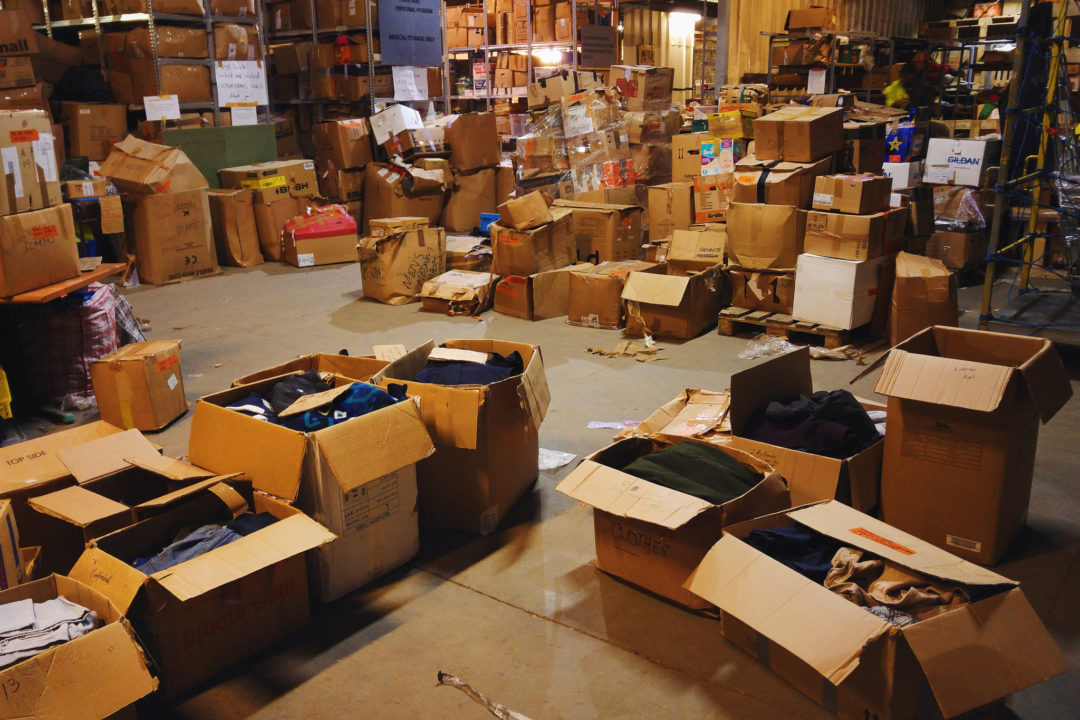
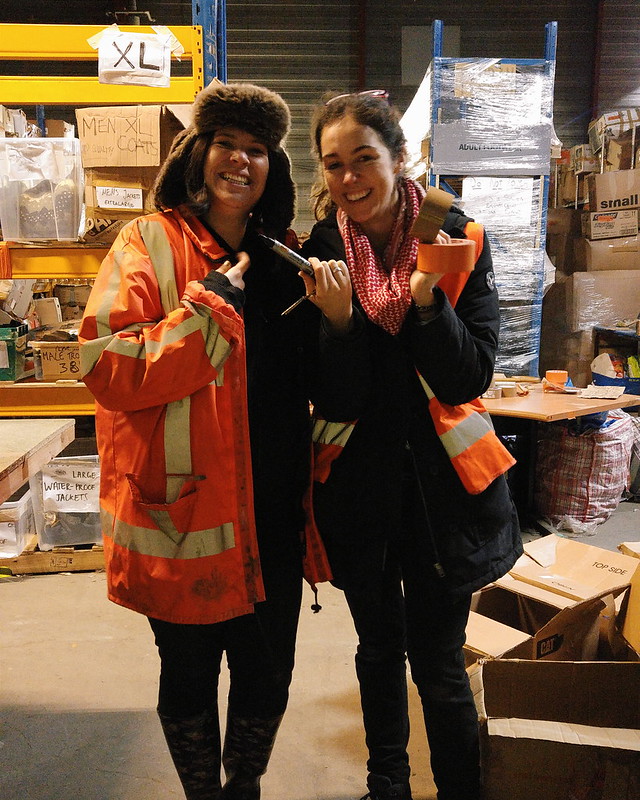
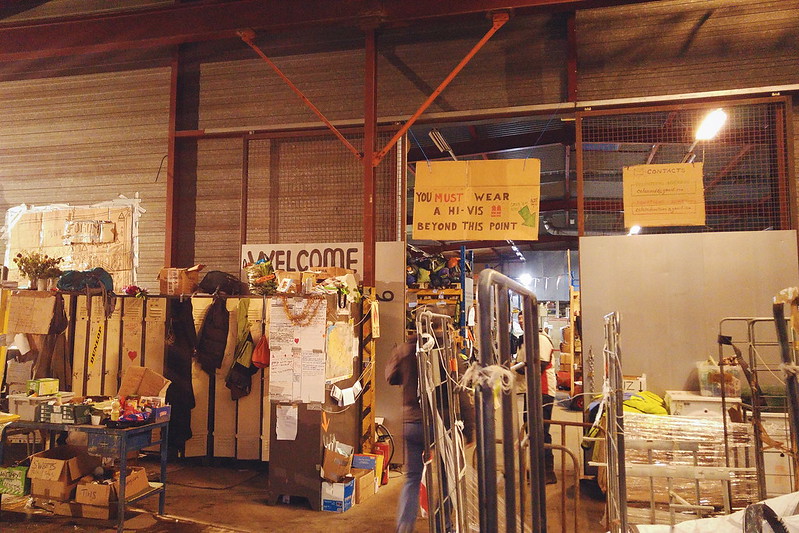
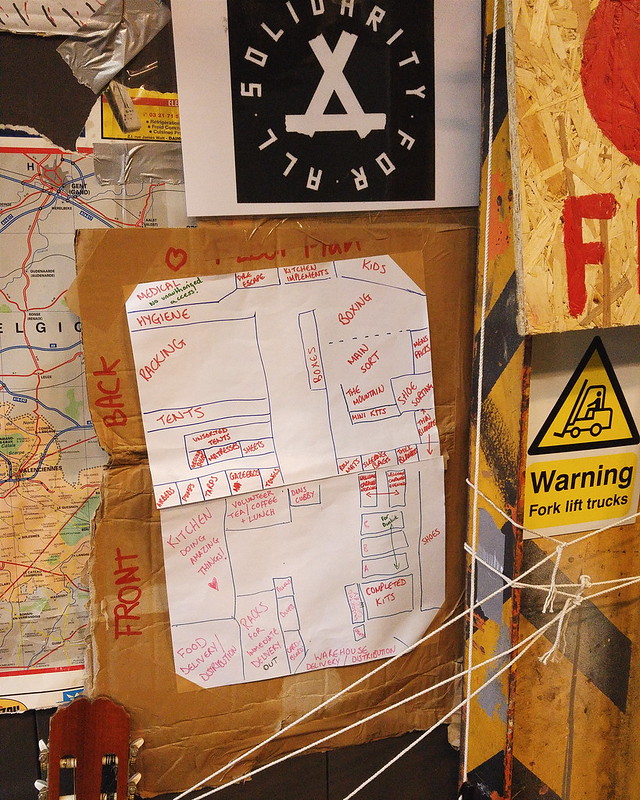
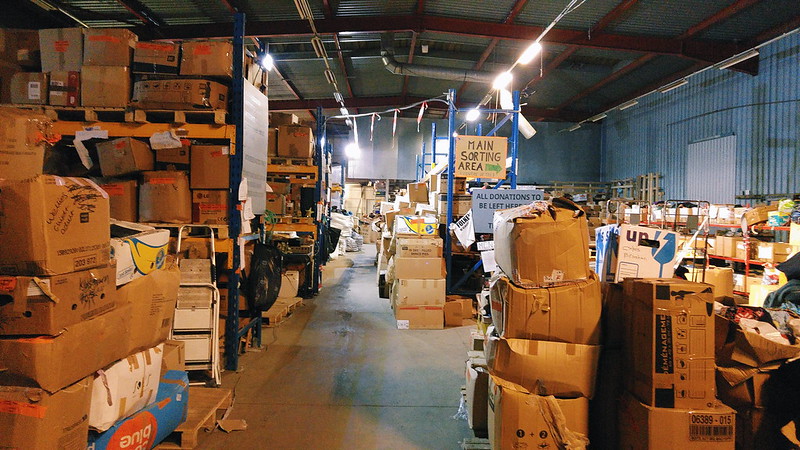
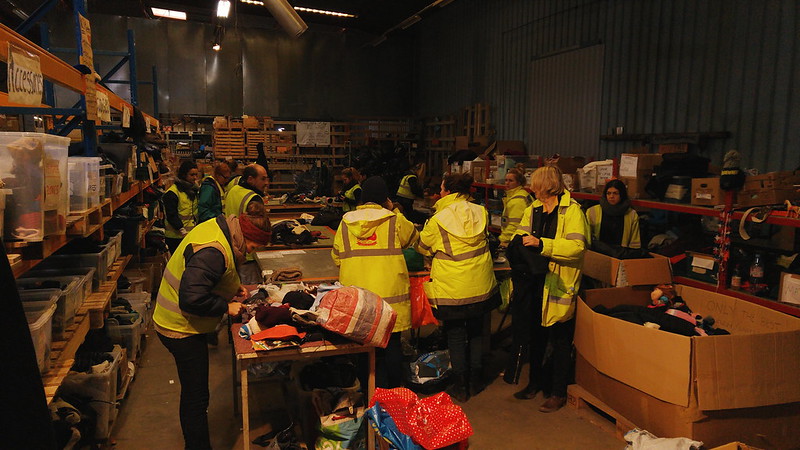
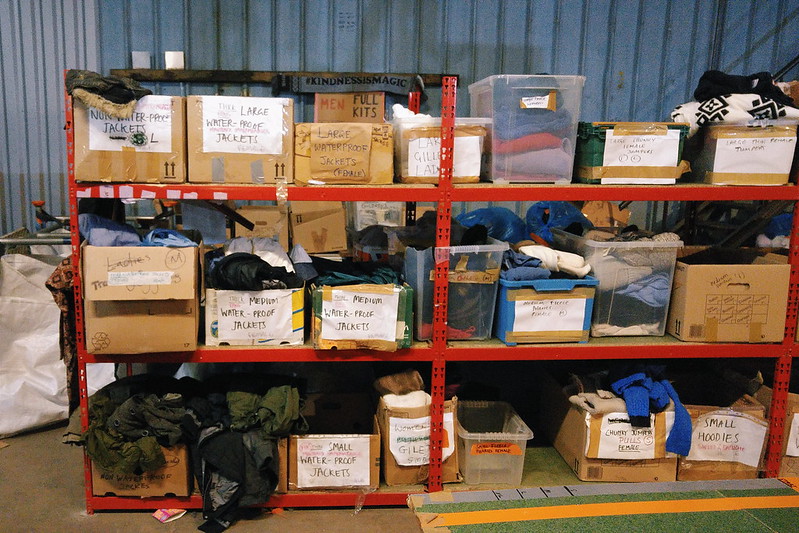
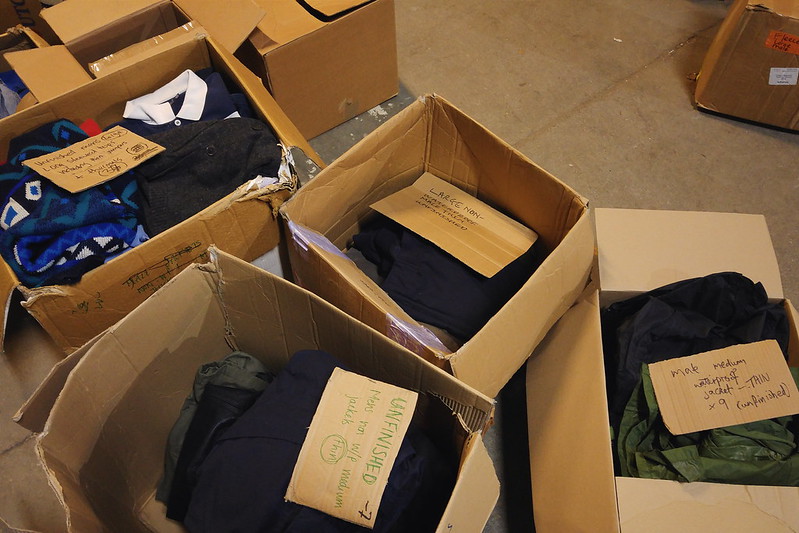
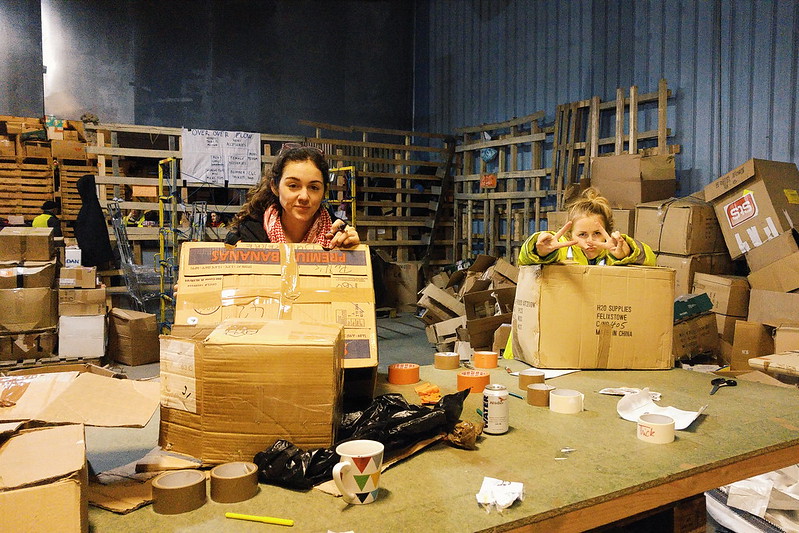
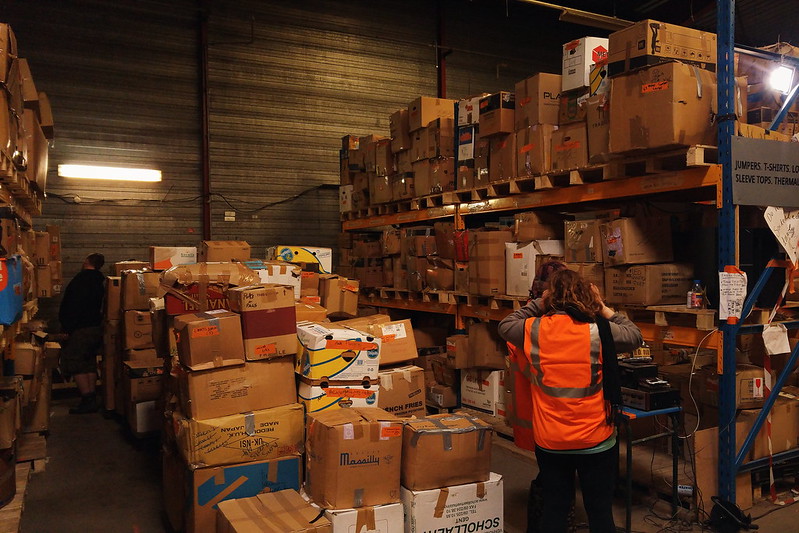
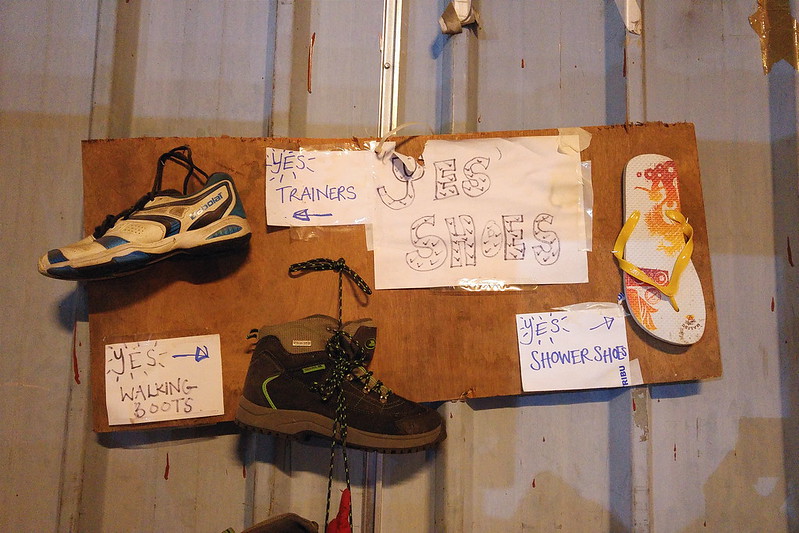
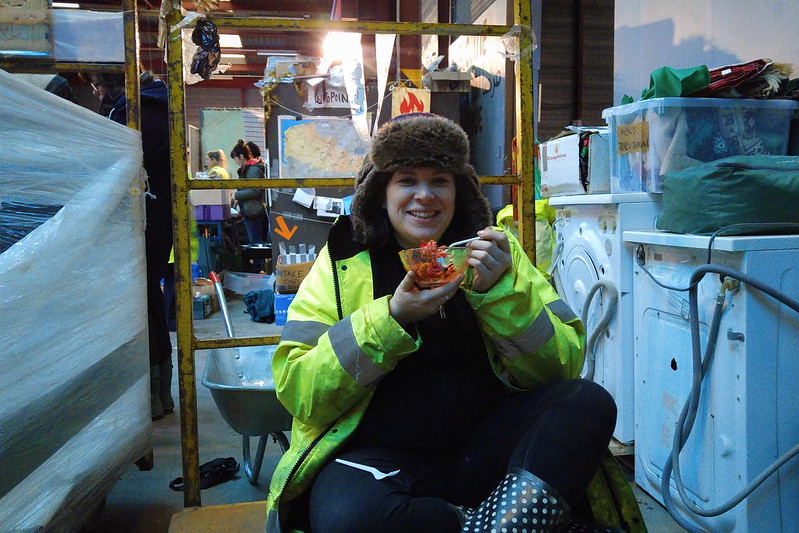
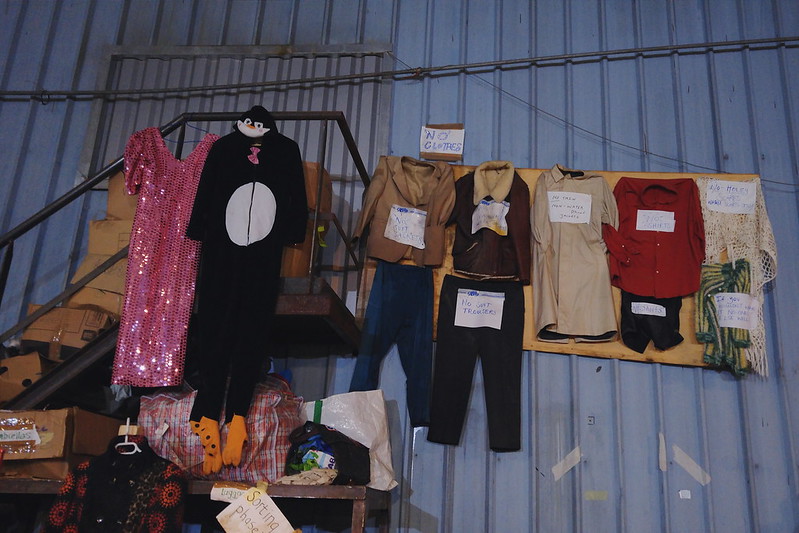
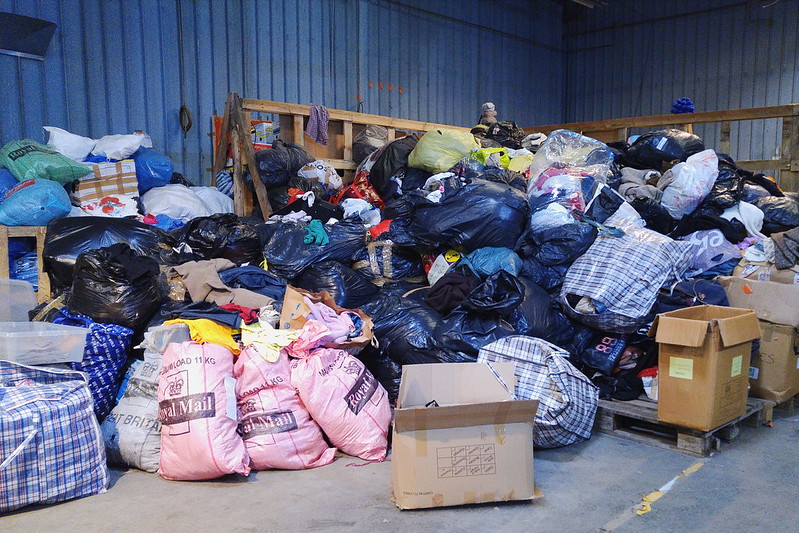

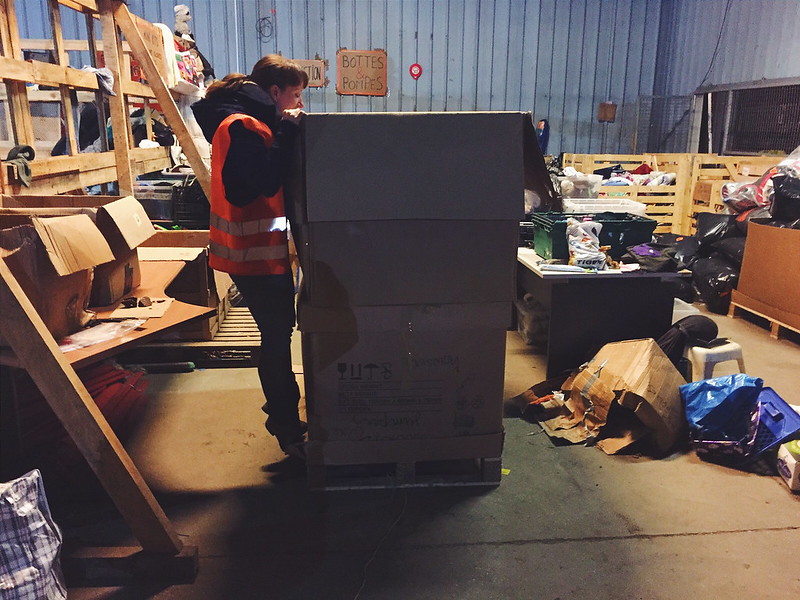
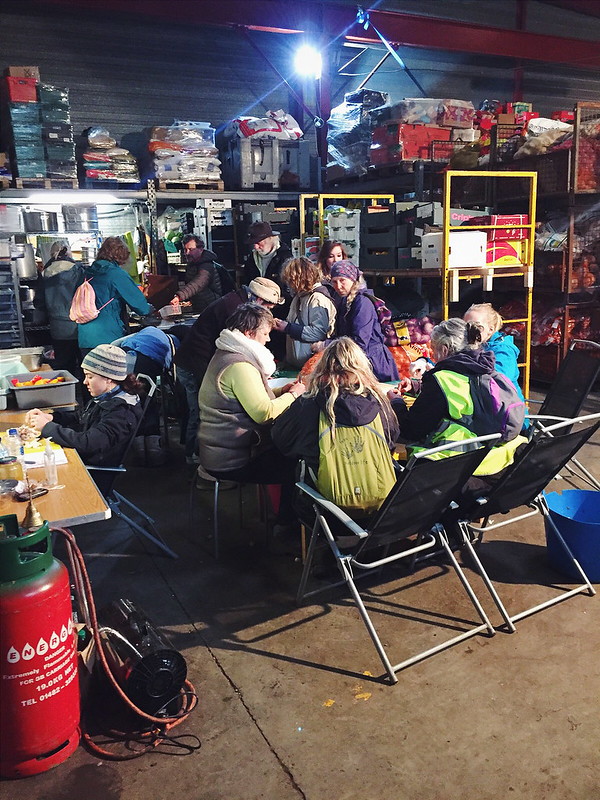
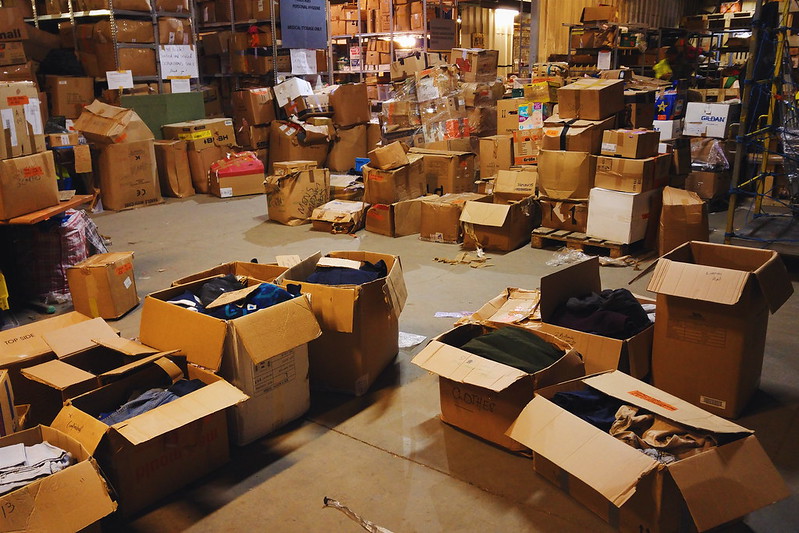
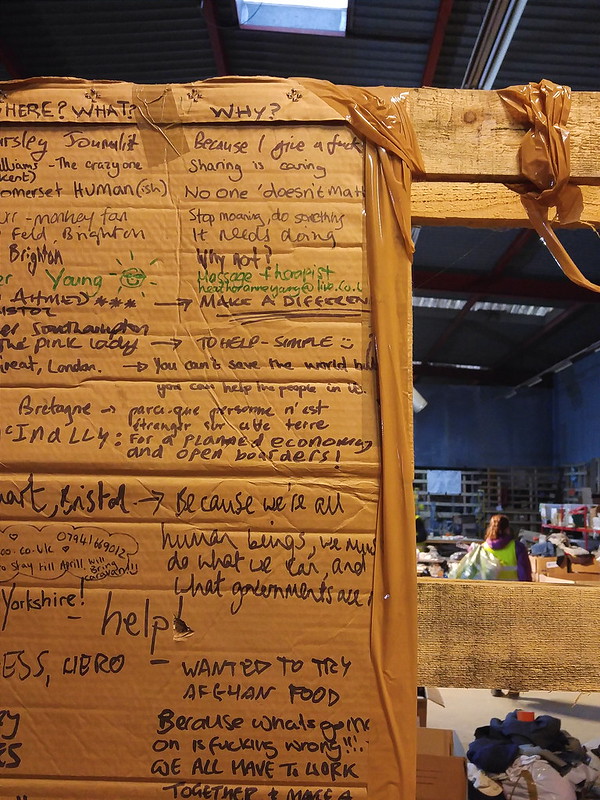
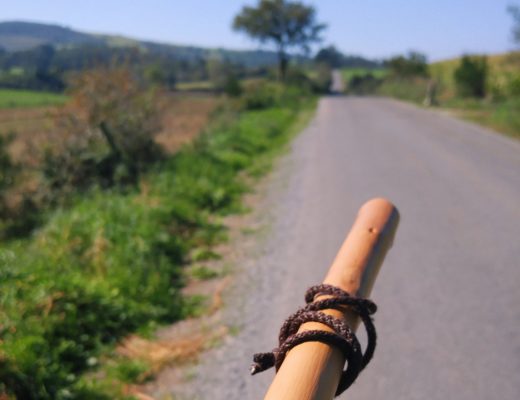
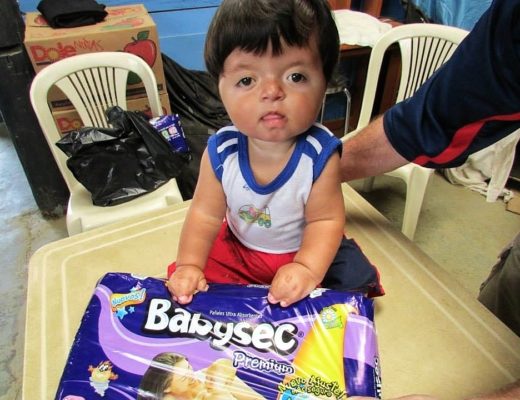
24 Comments
Kat
January 14, 2016 at 2:25 pmTom, what a hero.
Flora
January 15, 2016 at 2:34 pmI miss his pallet packing techniques already..
Kitchen-Counter-Culture
January 14, 2016 at 8:28 pmI’m coming. You are inspiring! Everyone’s help is inspiring, it’s manifested love and energy in the face of fear and a closed heart.
Flora
January 15, 2016 at 2:35 pmFantastic news! If you need any help with how to organise your trip just give me a shout 🙂 We all have to pull together in times like this – it’s the only way to combat that fear.
Natalie
January 15, 2016 at 2:59 amGreat post! Thanks for sharing and thanks for volunteering your time to help those in need.
Flora
January 15, 2016 at 2:40 pmGlad you enjoyed it Natalie!
Leigh | Campfires & Concierges
January 18, 2016 at 7:18 pmWhat an amazing way to spend a vacation! I’m happy to hear that they have found an effective way to manage volunteers…so many times when there is a crisis, you hear that volunteers showing up is just overwhelming to the folks on site. I have had a lot of volunteer experiences myself where you end up just standing around because they aren’t organized to handle an influx of volunteers.
Very cool!
Flora
January 24, 2016 at 1:14 amIt’s wonderfully well organised thanks to the tireless efforts of the long term volunteers – but they also constantly need new people to share the load. So if you’re ever in France and have a couple days spare to help out..!
Rachel the Meandering Mermaid
January 18, 2016 at 8:33 pmThis is amazing and really puts into perspective what happens after donations, something that I’m not sure a lot of people have thought of! I’ve never really put into thought what happens to my clothes, etc. when I donate them. I’m glad you had an awesome job and I wish I was in the UK or that my schedule allowed it, because I would love to volunteer!
Flora
January 24, 2016 at 1:22 amYep, it’s amazing to see what goes on behind the scenes – and makes you a lot more inspired to think through your donations as a result :p
The Refugee Crisis: Why Come to the Calais Camps?
January 21, 2016 at 11:36 am[…] inside the camp if I was actually needed – and for my first three days in Calais I worked flat out at the warehouse, packing boxes with a passion that bordered on […]
Zenobia
January 23, 2016 at 4:53 pmThis is just amazing to read. I never knew it was that easy to get involved. I have been trying to volunteer at German refugee centres for months, and no one is interested at all.
Flora
January 24, 2016 at 1:08 amI’m sorry to hear that the German effort has been hard to get involved with, Zenobia – have you looked for any local German groups on Facebook who might have more info about volunteering? But you’d definitely be able to volunteer in the Calais warehouses as they’re always eager for more helping hands 🙂
Zenobia
January 24, 2016 at 9:14 amOh yes, I have tried Facebook, websites of all the local groups, the local information evening. One of the issues seems to be that there is somewhat of a language barrier. I am not fluent in German. But then again, neither are refugees, right?
At the moment I cannot go to Calais as I have a PhD thesis to write… but if the situation is still as it is in October (and sadly, it probably will be) I will be in touch about making myself useful there!
Lily
January 31, 2016 at 8:53 pmThanks Flora. I loved reading your blogs. If you can recommend somewhere to stay and any other advice about travelling to and from the warehouse by car, that would be really great.
Flora
February 11, 2016 at 9:21 amSo glad you enjoyed them Lily! There’s quite a few different hostel options in Calais, the most popular with volunteers being L’Auberge de Jeunesse, and also some averagely cheap BnBs around the city centre. The warehouse address will be forwarded to you once you’ve officially registered to volunteer through Help Refugees but it’s about 20 mins driving from the ferry port 🙂
samstyan99
February 22, 2016 at 12:19 pmHey Flora, I’ve just spent the last week in the boxing/sorting area of the warehouse. I think I must have started the day you left. Reading your post made me so happy, I’m glad that somebody else really understands what it is we do, and how it affects us. I’m glad that you are better with words than me, because would never have been able to write about my experiences as clearly and concisely as you. I agree, the OCD side of me really came out this last week – I’d become weirdly obsessed with making sure that all the orange labels had all the correct info, and that everything was running smoothly! All the best, and hope to see you the next time I go down, Sam : )
Flora
February 27, 2016 at 4:50 pmSam, this is so great to hear!! It’s wonderful to know that other people have the same box-packing and labelling OCD tendencies :p I think I saw a post of yours in one of the Calais FB groups actually. Thanks for reading and I hope we’ll run into each other in the warehouse soon!
From Syria to Calais: Changing Your Perspective
February 25, 2016 at 10:01 am[…] Over the next week of volunteering, my perception of Calais was repeatedly reshaped. Amongst all the information I frenziedly absorbed about border control policies, immigration law and the potted histories of various war-torn countries, I also learned a chilling fact about Calais itself. […]
Kaleena's Kaleidoscope
February 29, 2016 at 5:17 amThis sounds like it was such an interesting experience. I’m going to be in Europe later this year and was planning on also volunteering in Calais, but I’ve just heard today that they are bulldozing the camp. 🙁 Did you happen to hear of any other camps that could use volunteers? I’ve heard of one in Greece but I’m wondering if there are any others because I, too, desperately want to help.
Trish
June 15, 2016 at 6:51 pmThanks for taking the time to write up about your experience-it’ really useful to read your personal experience and the links you provide are really good. I am just psyching myself up to go, having been given unpaid leave and this writing has been invaluable in leading me further on my journey and giving me great info.
Cheers,
Trish
Flora
February 20, 2017 at 11:34 amFantastic to hear that you were planning to head out, Trish! Sorry it’s taken me a while to respond but I hope you managed to psych yourself up enough – and that you found the experience enlightening and worth dedicating your time 🙂
Workers of the World Weekly: March 31, 2017
April 1, 2017 at 12:01 am[…] The Refugee Crisis: Volunteering in the Calais Warehouse Ever since the body of three year old Aylan Kurdi washed up on a Turkish beach, Flora had been planning to volunteer within the chaos that is the refugee crisis. […]
Helpful Ways to Volunteer with the Homeless in London
December 17, 2019 at 1:42 pm[…] serves hot, nourishing meals to displaced people in the UK and France. I met these guys when I volunteered at the refugee camps in Calais and their tireless efforts in the kitchen were nothing short of […]